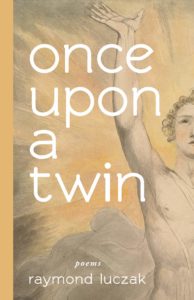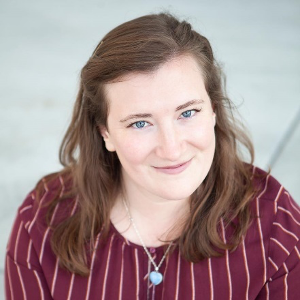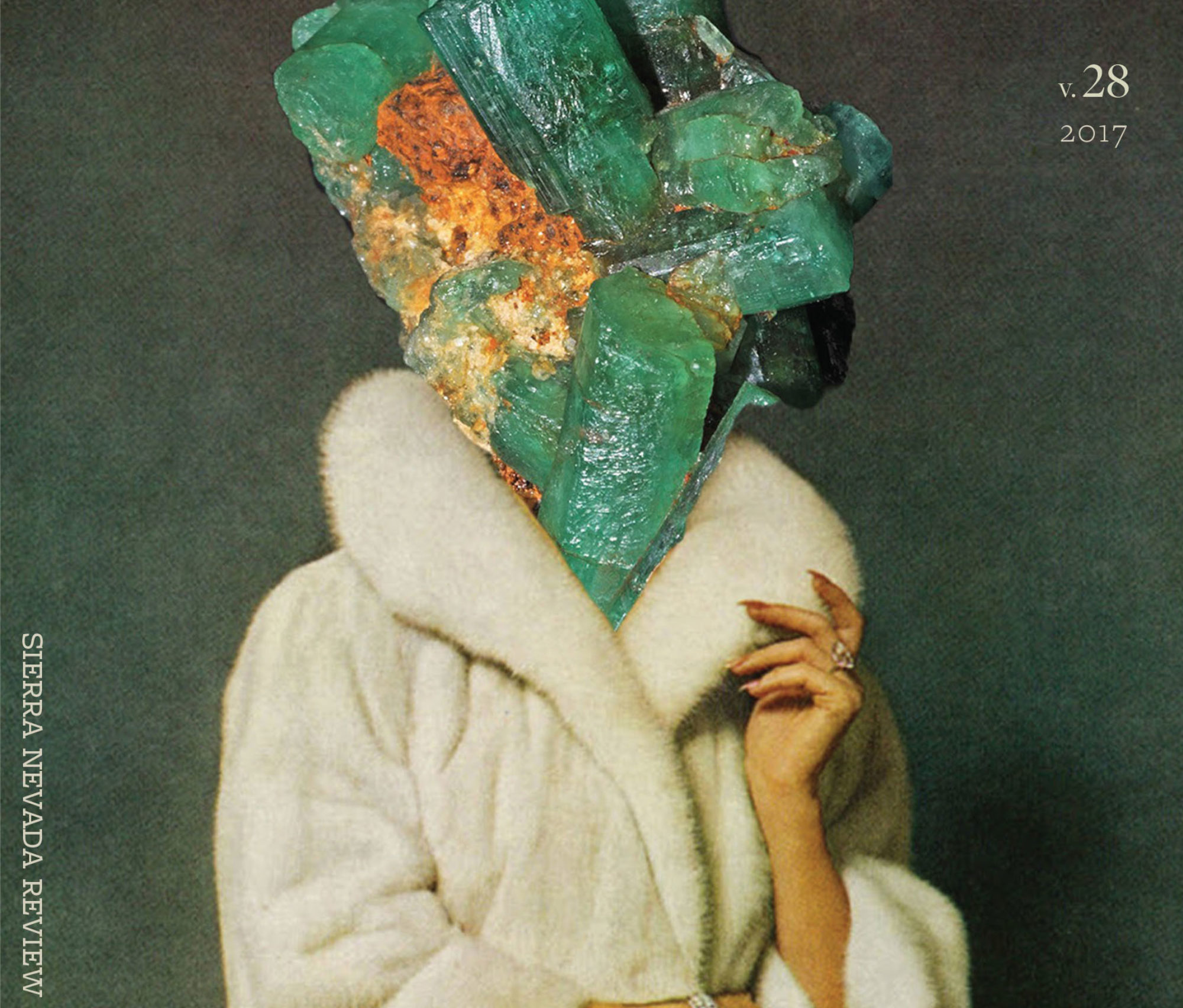 Copyright © February 10, 2021
Copyright © February 10, 2021
Poetry
$15.95, 96 pages
Gallaudet University Press
ISBN 978-1-944838-76-8
The Presence of Absence: A Response to Raymond Luczak’s once upon a twin
by Sara Paye
Readers of Raymond Luczak’s once upon a twin will be exposed to a variety and a lifetime of not only “what ifs” but also “whys”, astutely answered with imagination and a personal kind of science combined. The cover image shows an angelic figure lifting up one arm as if to worship, with beams of light behind. It must be a spiritual symbol for perseverance, for there is a mountain peak in the distance as well. Our narrator creates memoir with the guise of poetry in his own perspective between the years of 1965 and 1981.
Throughout the work, Luczak makes known the absence of his possible twin, in such a way that the reader is encouraged to believe every word surmised. He writes, “the only thing found in morass of trees & grasses / was my shadow barely alive / panting for my kiss / sleeping forlorn prince” (7), and instantly the reader is seeing a blurry reflection, curious, made to wonder who returns their gaze. A visual becomes haunting, created within the first few pages of the book, just as the author’s twin was supposedly formed and faded within the first few months of their mother’s gestation. The reader will have the opportunity to come to these profound conclusions through Luczak’s striking and meandering words.
From the first page, Luczak makes it clear that there is a world of untapped information as it is shared or withheld by his mother: the pregnancy, the miscarriage, and the eventual birth. But Luczak will get to be the master of his own rebirth, for he dares to write. Beginning with 9 months, the narrator’s mother is outlined as a woman who changes her story repeatedly, and Luczak provides something akin to a logical quiz.
then mom changes details again
she says she had a d&c done in february 65
when she felt her fetus wasnt growing
it wasn’t even 2 centimeters long
no idea whether it was a boy or girl
i am no longer sure what to believe (Luczak 2)
As the final line reads, “I am no longer sure what to believe,” the tone is set as to how the narrator will guide the reader through the following pages as a co-detective, investigating story and truth—and if not these, comfort in discovery.
A poem which exhibits the desire of the narrator to help, to save, to rescue his missing half is my corpse self.
the darkness of him
transparent
bright shining eyes
begging me to save him
alone in these woods (Luczak 8)
Loneliness may not sink in until many years after these childhood nightmares and yet it informs the present and future of the narrator’s life. This is lamentable and consoled by Luczak’s writing. For some readers, the idea of knowing a twin or sibling but only in a spiritual dreamscape will be painfully relatable. Knowing that we all cope with our absent loved ones differently, but with the same longing, is a solace. When reading if you were my twin, the reader may consider all the lives they may have led with their counterpart—how they must have relished in joy and commiserated in fear together. This is a pivotal aspect of Luczak’s work.
wed play old maid gin rummy go fish
while the sun dappled shadows & light
through the mottle of pine trees above us
wed never talk about them boys
being alone with you would be
a cake slice from heaven (Luczak 30)
There is a sense that the narrator and his Deafness, his being bullied, or his need for companionship is experienced now through the writing of this work as a balm to his heart, and the reader is aware that in the way that Luczak so deeply feels, he communicates with equal depth. When missing pieces of history pester our memories, we fill in the blanks until our stories feel like ours.
Luczak offers a direct poetic style in his phrasing that is accessible and reads with fluidity. His use of shorter lines and his dismissal of punctuation helps the reader pace and process the content as seen here in london dreaming, especially as this piece displays a dialogue and a meeting between two characters.
i was born in america
brighton boy here he says
or something like that
as i haven’t had a chance
to turn on my hearing aid
so im never sure (Luczak 49)
The internal conflict presented by the narrator is heartbreaking, curious, and brings the reader right into the present moment of the poem, its issues, and its uncertainty. A perfect example of this is repeated in its inverse, this time with remedy and assuredness, in my first phone call.
waiting for the phone to ring back
with him not saying anything
because he knew how
i didnt need to hear his voice
to know he was my best friend (Luczak 66)
Luczak expresses the title’s concept with poems varying from a double helix kyrie in english and asl gloss to holy communion. His poems are stories of reflection, whether in form or in spirit. The work of the words is not only in their construction, but in their meanings, as each chosen word is placed to fill an empty space where someone (a twin, a best friend, a lover) may have sat. If we are to see ourselves as dynamic beings—fully known and loved besides—as Luczak describes with his poems in Once Upon a Twin, there may be a desire to know this “other twin,” this counterpart mentioned so frequently. Yet continue to inquire until you know thyself along with Luczak, and there is an opportunity for an important connection to the author and to one’s own dreams, wishes, and ultimately one’s own soul cells.
As with a telephone call, so with the sharing of a slice of cake, and Luczak has a masterful way of describing the presence of absence with daily living experiences so that the poetry is, for the most part, resting on the wings of all that didn’t make the page. Luczak’s work helps the reader understand they are not alone, no matter how lonely. There is solidarity in knowing how the creativity of one’s life may free us from the darkest corners of mystery.
*
 Sara Paye (she/them) of Las Vegas, Nevada, is an awarded writer and Creative Writing MFA candidate at Sierra Nevada University. Paye’s published works are in Funicular Magazine and The National Women’s History Museum, among other locations. See their website at sarapaye.com.
Sara Paye (she/them) of Las Vegas, Nevada, is an awarded writer and Creative Writing MFA candidate at Sierra Nevada University. Paye’s published works are in Funicular Magazine and The National Women’s History Museum, among other locations. See their website at sarapaye.com.
